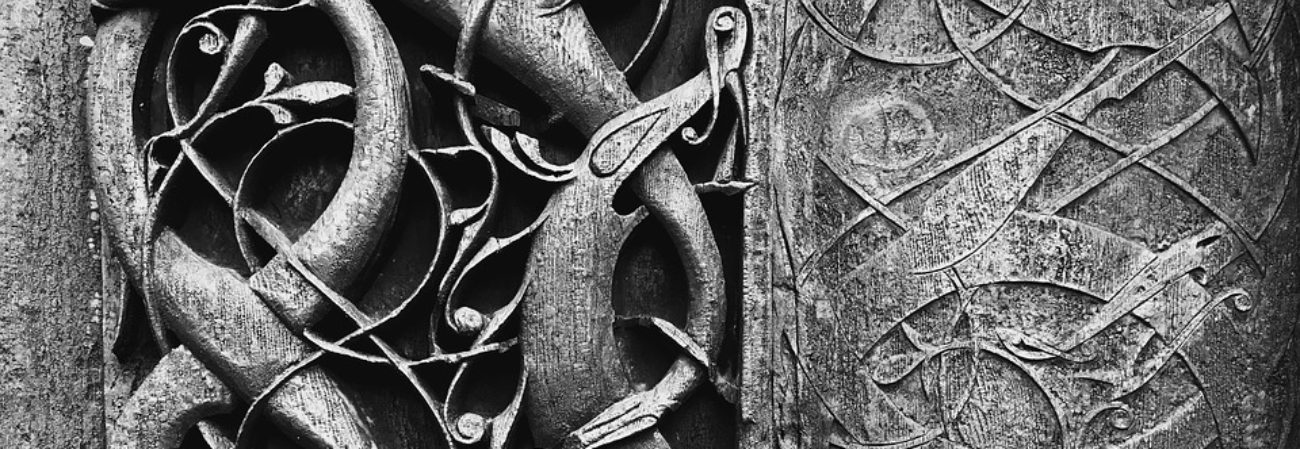 It didn’t happen any too soon. Bardas Phokas, the chief of the rebels and a one time trusted general of Basils’ was closing in on the imperial city. Or rather, one of his next in command, Kalyokyros Delphinas, who took charge of storming Chrysopolis, a city across the Golden Horn from Constantinople. It took a quite a long time for negotiations to take place, but once they did, either in late 988 or early 999, numerous long ships could be seen on the horizon and with them six thousand Norsemen. They soundly defeated Delphinas’ men. Delphinas himself went on to meet a nasty death of impalement. The Varangians then went on to Abydos where they were again victorious, albeit helped out some by Bardas Phokas inexplicably keeling over on the battlefield. Stroke? Heart attack? Poison? We can’t be sure.
It didn’t happen any too soon. Bardas Phokas, the chief of the rebels and a one time trusted general of Basils’ was closing in on the imperial city. Or rather, one of his next in command, Kalyokyros Delphinas, who took charge of storming Chrysopolis, a city across the Golden Horn from Constantinople. It took a quite a long time for negotiations to take place, but once they did, either in late 988 or early 999, numerous long ships could be seen on the horizon and with them six thousand Norsemen. They soundly defeated Delphinas’ men. Delphinas himself went on to meet a nasty death of impalement. The Varangians then went on to Abydos where they were again victorious, albeit helped out some by Bardas Phokas inexplicably keeling over on the battlefield. Stroke? Heart attack? Poison? We can’t be sure.
Of these six thousand men, Basil selected the best to be his personal guard. They were fierce fighters. Wherever Basil went, they went. Basil continued his campaign in Bulgaria, fighting on for around twenty more years before seeing victory. No doubt the Varangian Guard were there at the infamous Kleidion where who knows how many Bulgarians were blinded and sent home. In Syria, they are remembered for stripping the lead and copper from the Monastery of Constantine and setting fire to it.
They had the distinct honor of being able to go to the imperial vaults and being allowed to take away whatever they could carry when an emperor died. Their oath was to the emperor alone and not to the empire. They were also the best paid of the military. In fact, it was so hard to get into the Guard, yuu had to not only prove yourself, but pay the equivalent of three pounds of gold as an entry fee. Many guardsmen went home to Scandinavia, wealthy men. After England came under the control of William, Duke of Normandy, in 1066, many disgruntled and disenfranchised Englishmen left to become guardsman.
The result of the marriage of Anna to Vladimir? Eventually Russia. Her grand onion domes, Cyrillic alphabet, eastern orthodox religion and many customs, were all distinctively Byzantine. But her name Russia, is because of the Rus, the Norse traders who came down to what is now the Ukraine to do business.
Later, Harold Hadrada would make the Varangian Guard famous with his innovative battle tactics, before returning to Norway to be king. He died at Stamford Bridge in 1066, in a failed bid for the throne of Northumbria. before the Saxon king, also named Harold, marched down to Hastings to meet his own defeat at Hastings at he hands of the William, the bastard Duke of Normandy.
The Varangian Guard survived in some form or other until the fall of Constantinople to the Ottoman Turks in 1453. By this time they no longer had the same awe-inspiring reputation, nor were they a Scandinavian unit. However, the memory of them is still renowned, as one of the most fearsome foreign units in history.
Skip to content

